|
Lent is the perfect time each year to do a personal assessment of our relationship with Jesus – to see if we are walking the path to sainthood as we are called. God calls each of us to become saints and it is imperative that we evaluate our spirituality, our actions, and our goals. This year I have been using three specific resources to aid in my self-reflection and in resetting my focus. Fr. Thomas Dubay’s Happy Are You Poor, Matthew Kelly’s I Heard God Laugh, and the music of Danielle Rose are helping me with my grand reset.
During this beautiful time of Lent, my individual assessment of my growth in holiness is both difficult and reassuring. In reflection, I am reminded that I am here to live out the Beatitudes – not to have memorized them, but to daily use the opportunities in my station in life to live them out. God also reveals to me that I am not to be like my favorite saints, but to become a saint by being authentically me, the unique person He created me to be. He also continues to enlighten me about deeper ways to communicate with Him in prayer. Little snippets in the morning give me focus to be the living sign of God’s love in the world I walk in. Then, throughout the day, I ask for help to physically live out the mission He has called me to. Simple little mantras such as: “Lord, help”, “Jesus, not my words and responses, but Yours”, “Jesus, Mary and Joseph give me strength and courage” are prayers I repeat throughout the day to help me remain in God’s will and not in my own. Growing in our Christian life is a continual moment by moment journey of self-discovery. The more we grow in love of Jesus, the better we come to know ourselves and the importance of our individual participation in His glorious mission in the world. I am struck by the essential commitment I must have to become who I was created to be, because that is how the presence of our Lord Jesus Christ is made known to those around us. “When you hung upon the cross looking at me, You didn’t die so I would try to be somebody else. You died so I could be the saint that is just me” is the refrain Danielle Rose sings that speaks of the magnitude of Jesus’ love for each of us and the intimate connection He desires with us. These little rituals and inspired guides keep me grounded as I live in the messiness of my humanity in this complicated world. Another aspect of my relationship with Jesus that I am examining comes from Happy Are You Poor. Fr. Dubay helps us to understand the things we are attached to, and why, and if these attachments are leading us deeper into the heart of Jesus or driving us away from Jesus. This is always a difficult process because I have to repeatedly admit to the things I am attached to that bring me temporary comfort and feed my selfish nature, and then I have ask for the grace to let go of these things I cling to so that Jesus can live in me. These practices in Lent are difficult, but not out of my reach. I attend daily Mass as frequently as possible and this communion builds the holy virtues to let go of my earth stuff, my temporal comforts, and to open myself to be God’s. At the beginning of each Mass, we recognize our fallenness and verbally repent and commit to do better. God’s love and mercy are always available to us so that we can change for the better. That is the assurance that keeps me striving. And in the quiet after receiving the Eucharist, I speak in my mind part of Psalm 95: “For You, O Lord, my soul in stillness waits, truly my hope is in You.” Matthew Kelly gives me such tangible and direct instruction to realign my life within God’s will. His emphasis on deepening our prayer life and then giving direct ways to accomplish this are worth reading and putting into practice. He speaks to us in the reality of our busy, chaotic, and very full lives with a simpleness that I can relate with. His theology is completely understandable and therefore gives me assurance that I can put it into practice in my daily life. Lenten rituals cause us to be uncomfortable in our flesh (as Jesus was in the desert) so that we can be totally dependent on our God to lead us. This examination, this ‘coming clean,’ is a necessary element of our Christian journey. Receiving the Eucharist to nourish us and receiving absolution in the Sacrament of Reconciliation are the wonderful gifts we have to assist us in our closer walk with Jesus and in fulfilling the individual purpose of our lives. Finding scriptures to meditate upon and asking God to reveal what He wants us to do daily to lead us to deeper levels of intimacy with Christ. All of these are designed to enlighten us, to transform us, and to bring us to a more joyful celebration of the victory of Easter! So, my fellow comrades, embrace the work that this season of Lent provides so that we may all grow deeper in love with our Lord and He may live and move and breathe through us! “Lord make us turn to you, let us see your face that we may be saved.” -Psalm 80 Click here for more resources to accompany you this Lenten season.
0 Comments
“O my people, I will open your graves and have you rise from them, and bring you back to the land of Israel. Then you shall know that I am the LORD.”-Ez. 37:12-13 “Come out!” The words reverberate and resound in the stench-filled tomb. We too need to hear the words proclaimed to the dead man as we approach the end of our Lenten journeys. Come out! Lent has been our own time of preparing for resurrection—abstaining from anything that deadens us to the voice of Christ inviting us to the fullness of life. For the past few weeks, we have participated in spiritual practices that renew and refresh our spirits. We’ve journeyed with Jesus in our own deserts. And the culmination of this journey is about to occur in only a couple more weeks. Lazarus’ resurrection precedes the Resurrection that changes everything. It is a glimpse of what awaits us after death. The once rotting man stumbles out of the dark and into the light of Christ—his dear friend. Lazarus’ sisters, Mary and Martha, do not even say his name when telling Jesus of his illness, but identify him simply as “the one you love.” The one you love…What a beautiful way to be identified. I think about this for a moment before realizing this is what we are all called to and all invited to: to be the ones Christ loves. This short phrase is our deepest identity as baptized sons and daughters. We are the ones He loves. And as we prepare for Holy Week and Easter Sunday, this reality will be fully demonstrated: “For God so loved the world that he gave his only Son” (John 3:16). Jesus will tell us on Good Friday, embracing us with arms wide open on the Cross, “you are the one I love.” As a result of this great gift, Christ can call us to resurrection—not only after death, but in the here and now. So many realities in our world today threaten to numb us from this true reality. Perhaps we find ourselves in Mary’s shoes. When she and her sister hear of Jesus’ coming, Martha runs to meet Him, but Mary stays where she is. Was hope dead within her? Was she too consumed with her grief to dare to have faith? Did death have the last word? Perhaps many of us feel the same way: disillusioned. Tired. Grieving. Doubtful. But Mary’s sister, Martha, shows us another way. Her path leads to the resurrection of her heart in the here and now. In today’s Gospel, the sisters seem to have traded places. Today, it is Martha who chooses the better part. She runs to meet Christ at the moment she hears of His coming. In spite of any doubt, fear, disillusion, or grief—she acts in hope. And this leap of faith is what enables her to give Jesus her all and say, “Lord, if you had been here, my brother would not have died. But even now I know that whatever you ask of God, God will give you.” (emphasis added) (John 11:22) In these words, I hear her say, “Lord, I am disappointed. I am grieving. My brother has died and you were not here. Had you been here, he would have lived. But I give this desire to you. I trust in you. Let it be done according to God’s word.” This, in a sense, can be Martha’s fiat. Her surrendered disposition, mixed with faith, trust, and hope, is what then enables her to confirm, “Yes, Lord. I have come to believe that you are the Christ, the Son of God, the one who is coming into the world.” Martha has joined the woman at the well and the Apostle Peter in confirming Christ’s identity as the Messiah. She has “come out” of her own tomb. This past calendar year has likely felt like a tomb for many of us. Perhaps we feel most like the seemingly abandoned Lazarus languishing in the dark. “Where were you, Jesus?” we may ask with Mary and Martha. “Do you not care that the one you love is suffering?” Jesus does more than care. It is so comforting to read that “Jesus wept” at the knowledge of Lazarus’ death and became greatly perturbed. I can imagine the same, if not a greater, reaction at the death of his earthly father, Joseph. Christ weeps at our suffering. The Creator shudders to see His creation perish. This is not what we were made for. And in His humanity, Christ weeps with us and for us. But not only will the Son of God weep for His loved ones; He will die for them in just a few days. It is not enough for Him to acknowledge our suffering—He takes it on. He transforms it. He transfigures it. He resurrects it. As we approach the end of the Lenten season, let us not stay put with Mary but run out with hope like Martha. I pray this Easter Sunday to say firmly with her, “Yes, Lord. I have come to believe that you are the Christ, the Son of God, the one who is coming into the world.” We are the ones whom He loves. Let us spend some time relishing, resting, and growing in this identity in the remainder of the Lenten season and beyond. In these final weeks of Lent, let us continue to “come out” of our tombs with our prayers, fasting, and almsgiving so that we may not stumble as Lazarus did but run out towards Him who calls our name. Let us come out into the light. For more resources to accompany you on your Lenten journey, please click here. Click here for this Sunday's Mass readings. Before Lent 2021 began, I had fallen into a habit of making excuses for my weaknesses, the biggest of which was: "I would be able to have the spiritual life I want if I didn't have three children, a husband, and a household taking up all of my time!"
The idea of spending most of the day in quiet or chanted prayer is attractive—especially now, when I have a husband, a house, and three children. St Frances of Rome would have understood this—as a preteen she desperately wanted to be a nun, but her family arranged a marriage for her instead; rather than entering the convent, she entered a wealthy and connected family. Frances never let go of her devotion to God, although she did eventually grow into and embrace her temporal vocation as the manager of a wealthy and influential Roman household. She found a balance of work, prayer, and asceticism that she could incorporate into her daily life. For Lent this year, I decided to imitate St. Frances and take a page from her playbook, incorporating more prayer into my daily work and adding ascetic practices that are realistic for my current phase of life. I have a specific time of day for meditative and personal prayer with God that I try to maintain every day, but in addition to that, I have been trying to intertwine work, prayer, and asceticism whenever I can. Instead of listening to current events podcasts when I do the dishes, I am using one of these abacus style kitchen rosaries so that I can pray while I work and so that I can keep track of where I had to stop when I was interrupted by the needs of my children. Instead of scrolling through social media or aimlessly puttering around on my phone while I nurse the baby, I am working my way through St. Ignatius of Loyola’s Personal Writings. I may not be able to fully partake in Lenten fasts due to my nursing baby, but I can avoid snacking whenever possible—and when I have to watch my children eating my favorite granola bars while my stomach is starting to rumble, I try to offer it as a prayer and remind myself that small acts of self-denial prepare us for big acts of self-denial. Other ideas for minor ascetic practices that we can add to our Lenten promises (or Fridays in Ordinary Time) include: taking cold or cool showers instead of hot ones, not eating any sweets or desserts, not using a pillow at night, and adopting more days of the week when we abstain from meat. St. Frances of Rome is quoted as saying, “A married woman must, when called upon, quit her devotions to God at the altar to find him in her household affairs.” This is definitely true for me; doing the laundry, cooking the meals, and giving the reading lessons are my responsibilities. I can show my love for God by loving my family and by making these humble sacrifices rather than neglecting my duties in favor of carrying out an arbitrary set of devotions every day. As we continue on our Lenten journeys, I encourage you to think about how you can incorporate more prayer and asceticism into your daily routines. For more resources to accompany you this Lent, please click here. For more resources on Marriage and Family, please click here. Lent is not a diet program. Yes, the Church recommends the ascetical practices of prayer, fasting, and almsgiving. These, though, are meant to help us love God and neighbor more fully. Pope Francis in his homily for Ash Wednesday offered this consideration: “Lent is a journey that involves our whole life, our entire being. It is a time to reconsider the path we are taking, to find the route that leads us home and to rediscover our profound relationship with God, on whom everything depends. Lent is not just about the little sacrifices we make, but about discerning where our hearts are directed. This is the core of Lent: asking where our hearts are directed.” Where is your heart directed? Is it a divided heart? It is easy to compartmentalize. Or so it seems. Eventually, trying to live life in two directions tears us apart. “Our entire being” needs to be engaged, not simply part. We can pray, fast, and do almsgiving, but still be unconverted within. These acts are a means to an end, not an end in themselves. These “little sacrifices” should sharpen our minds and open our hearts more fully to a life directed toward God and neighbor. If they are done simply for us to feel a sense of accomplishment or as a test of our will, then their focus becomes about us. How do we go forward? By realizing that “everything depends” on God, not on us. Once we do, and cooperate more fully with the grace of Christ, our hearts will be undivided, united in love with God and neighbor. May the charity of Christ urge us on! For more resources to accompany you during your Lenten journey, please click here.
\We are once again in the midst of the liturgical season of Lent. These forty days before the Triduum are opportunities to prepare ourselves to enter into the Passion of Christ through penitential practices such as prayer, fasting, almsgiving, and self-sacrifice. Done correctly, our Lenten practices can be cathartically cleansing as we imitate Christ’s forty days in the desert after His baptism. This incredible withdrawal of the Lord from the outside world to dwell on the calling of His Heavenly Father before the commencement of earthly ministry remains a model for us all. During Lent, the faithful do not isolate themselves from the world in fear but rather draw strength from Christ. Shaking off the comforts and complacencies of living in the world may be a bit jolting, but our ultimate goal is holiness; anything else is just a noisy distraction which can never truly satisfy our deepest desires. Today, technology has become integrated into our lives and relationships. Social media, the internet, and the incredible utility of our smartphones may occupy a large part of our daily attention. It’s no wonder we can find it harder to disconnect from the outside world. Indeed, while the proper and moderated use of technology can be beneficial, observing the dangers of failing to unplug from the world (i.e., harming real human connections), has helped deepen my appreciation for the isolation opportunities afforded by Lenten observances. Lent calls each of us to remember the ultimate sacrifice God Himself made on Good Friday. This salvific act is so significant that it cannot be restricted to just one day on the liturgical calendar. The Church commemorates Jesus’ Last Supper, Passion, and Death during the Triduum. As these days draw near, the faithful are called to prepare themselves to enter into the Paschal Mystery by putting aside our worldly comforts and imitating how our Lord spent precious time among His disciples before His death. While Lent is an increased time of preparation and time of intentional growth in holiness, the Church has no shortage of opportunities to deepen our relationship with the Lord year-round. Sunday Mass offers us the spiritual nourishment and proper grounding to start each week. The choices we make in the hours or days following Mass can build upon the scriptural and sacramental foundations laid during the service. Recommitting ourselves to our families and their needs can strengthen the love binding us together; praying with and serving each other builds up the domestic church. For example, volunteering to lead devotional prayers together as a couple or family is a beautiful expression of intimacy and faith. Additionally, during Lent and beyond, we may replace screen time with spiritual reading so we can be inspired by the writings of saints or theologians and discover new avenues of holiness for our lives. Certainly, we can sacrifice a worldly comfort during Lent, but we can also perform charitable works and make a difference in the lives of others during this season. Lent is not a diet! Lent is intended to bring us closer to God, Who is found not in the noise of the world, but in the quiet whisperings of an open heart. Prayer enables us to make room in our hearts for Him to dwell in the temples of our bodies and radiate through our lives. We cleanse ourselves of distractions that prevent us from the holiness He calls us to and we commit ourselves to prayer, fasting, and almsgiving. We repent of our sinful shortcomings and avail ourselves of the sacraments of the Church. Our desire to accompany our Lord can be fulfilled by our faithful vigilance in Eucharistic Adoration, especially in the nighttime hours when our “spirit is willing, but the flesh is weak.” Our Lord is present in the Eucharist we receive at Mass, the Sacrament we adore, the family we are a part of, and the people we serve. He is always ready to not just be a relegated part of our lives, but the core of our very being. The season of Lent can serve to motivate us to choose the better part rather than be complacent in the empty comforts of the world. Though we seek isolation from the distractions of the world to accomplish a meaningful and fruitful Lenten observance, we are promised by the Lord God Himself that we never walk alone when he says: “I am with you always, until the end of the age.” For more resources to accompany you throughout your Lenten journey, please click here. “A clean heart create for me, O God, and a steadfast spirit renew within me.” -Psalm 51 This year I find myself anticipating Lent eagerly. I relished the joy and hope of the Christmas season, but when it came to an end, I entered into Ordinary Time and found myself slushing through the seemingly never-ending gloom of winter. You know the season—the small chunk of the liturgical calendar that sometimes feels like an awkward waiting game between Christmas and Easter. Right now, I feel spiritually complacent—mediocre. My prayer life feels as drab as the ongoing winter. I am distracted and bogged down by cares of the world. I don’t have a consistent routine. But now Lent is upon us. And I’m ready to change things. For Ash Wednesday’s readings tomorrow, we immediately hear the powerful words of the prophet Joel: “Return to me with your whole heart, with fasting, and weeping, and mourning; rend your hearts, not your garments and return to the Lord your God.” This is followed in the second reading with, “Behold, now is a very acceptable time; behold, now is the day of salvation.” There is an urgency in the Scriptures on this day. The tone is serious and I can almost hear St. Paul’s breathlessness while he exhorts the Corinthian church, “We implore you, be reconciled to God.” They ring out to each of us today and serve as a wake-up call to Christians: do not wait until tomorrow to pursue holiness, but start now, this very minute. The readings begin to awaken me from my spiritual slumber. However, words alone do not suffice in spiritual conversion. They require action—a response. Rather than causing me panic, the readings continue by offering concrete solutions. Christ himself instructs us, telling us to give alms, pray, and fast in tomorrow’s Gospel: “Take care not to perform righteous deeds in order that people may see them… When you give alms, do not blow a trumpet before you.” (almsgiving) “When you pray, go to your inner room, close the door, and pray to your Father in secret.” (prayer) “When you fast, do not look gloomy…anoint your head and wash your face, so that you may not appear to be fasting.” (fasting) These instructions are God’s response for how to “return to the Lord with your whole heart” this season. We are not left with lofty, unattainable goals, but with action. This is what Lent is all about: responding to God’s grace and promptings in our lives to pursue holiness with greater attention and effort through prayer, fasting, and almsgiving. Only two times a year does the Church ask us to prepare at so committed a rate: Advent and Lent. The reason for this is because Advent and Lent prepare us for the two most important theological moments of Christianity: the Incarnation of God made flesh in the birth of Jesus Christ and the Resurrection of the Savior after his crucifixion and death. In order to even begin to grasp, understand, and celebrate the enormity of these events, we need to be spiritually awake. And the best way to wake up and prepare for Easter is through prayer, fasting, and almsgiving, which the Church invites us to do during the Lenten season. And our spiritual fathers remind us that “now is a very acceptable time…Now is the day of salvation” (emphasis added). Currently in my spiritual life, I feel a bit like the rich fool in the Gospel. He reached a level of material comfort that led him to build larger barns to store his wealth, only to have his life demanded of him that very night. While I don’t resonate with his material wealth, I feel satiated as he did by the things of the world. As I enter into the Lenten season, I find it hard to concentrate in prayer because I’m thinking of material goods or worldly concerns. It was not the wealth of the man itself that was wrong or evil, but his complacency. He looked at the “many good things” he owned and decided to rest, eat, drink, and be merry. Christ then goes on to say he was rich in treasure for himself but not “rich in what matters to God.” What matters to God is a relationship with each of us (prayer), a life lived in service to others (almsgiving), and occasional self-sacrifice (fasting) that increases our discipline, unites our sufferings to Christ’s on the cross, and increases our reliance on God himself. So now, as I find myself at the beginning of this Lenten season, I want to emerge from my spiritual complacency and respond to the Lord’s call to return to him with my whole heart. Will you join me? For more resources to accompany you through your Lenten journey, please click here. Lent starts next Wednesday—do you feel ready for it? Maybe you have your Lenten battle plan prepared and are feeling ready to crush your spiritual and penitential goals this Lenten season. Or maybe you are more like me—you’ve given it some thought but haven’t come up with much yet, and you might just pick something, anything, to do in order to make the liturgical season feel different from the rest of the year.
Either way, I think it’s helpful to take a step back and assess what we plan to undertake for Lent, why we are choosing those things, and how to best go about deepening our relationship with God and embracing the penitential nature of the season. The Church in her wisdom has already given us guideposts for how to structure our spiritual renewal during this season: Lent is known as the liturgical season for “prayer, fasting, and almsgiving.” If we aren’t feeling prepared to dive into Lenten penances, it can be tempting to ask what others are doing and just follow them or commit to doing something that seems appropriate for the season. But as we enter this last week of Ordinary Time before Lent begins, I encourage you to spend time in prayer and quiet reflection to really focus on those areas that you need to work on to grow closer to God and to be a more faithful follower of Christ. Here are some ideas for discerning what to undertake this Lenten season: Prayer Prayer is probably the easiest to take on when deciding what spiritual practice to do for Lent with the intention of continuing afterward. For example, there are “classic” Lenten observances you can easily plug into, like the Stations of Cross, that you can commit to praying regularly. I try to choose my Lenten prayer regimen based on what has been on my heart or what I have felt drawn toward but have yet to act upon. For example, maybe you feel that you don’t know the Bible as well as you would like to. You can check out the daily readings here, or listen to or watch a short reflection on them. Or you can commit to praying the rosary several times a week (or daily), using a Scriptural rosary or iconography to help you focus. Fasting Before I matured in my faith, I thought that “fasting” essentially meant: “One full meal, two small snacks, get through Ash Wednesday and Good Friday and then you don’t have to be hungry during the day for another year!.” Only as a young adult did I begin to understand that we are not called to only fast from food, but also from things that are holding us back from God. I used to fast from chocolates or desserts as my Lenten penance almost every year, whether I had been indulging in them too much or not. Once I tried to fast all of Holy Week because that seemed like the kind of thing that hardcore Catholics would do. Neither of these penances bore much fruit for me because I hadn’t chosen to fast from things that were really impeding my vocation as a follower of Christ. Choosing what to fast from for Lent is probably the most difficult thing for us to choose wisely because it involves serious reflection on our own faults and weaknesses. Do you have a negative way of thinking about certain people because they have wounded you? Do you turn to food as a source of comfort instead of praying? Do you indulge in inappropriate books, movies, or TV shows? Do you spend too much time on your smartphone games, Facebook, or Instagram mindlessly scrolling and occupying your time? Think about some things that might be hindering the deepening of your spiritual life and try fasting from one this Lenten season. Almsgiving Many parishes and dioceses use Lent as a time for special appeals and almsgiving opportunities. I recently came across this idea from a friend: during the season of Lent, she and her family cut back on unnecessary expenditures (like Starbucks or junk food) and donate that money to a local charity that is of particular importance to their family. Others choose Lent as a time to increase their regular weekly or monthly offerings to their parish, and then maintain that new amount for the rest of the year. Maybe you don’t have a lot of expendable income—then perhaps you could donate a few canned or dried foods to your parish’s food pantry or find another way to donate your time or your talents to your parish or local community. In the past few years, I have taken to limiting myself to working on one or two specific things for each of these categories of Lenten penance—things that will help me grow closer to God and that I can see myself continuing long after Eastertide is over. I started doing this after a particularly ambitious Lent during which I had a multi-item, handwritten list of things I was going to do—none of which I maintained past the first two weeks because I was completely overwhelmed and burned myself out. When we reach too high, too fast, we can end up setting ourselves up for failure and not making any progress at all! I encourage you to try to focus on things that are realistic not only during the season of Lent, but that you may also incorporate into your life permanently. For resources to prepare you for the Lenten season, please click here. The Gospel reading for the Fifth Sunday of Lent is the familiar passage of the adulterous woman and her accusers. For as long as I can remember, this story has been bittersweet: it involves targeted harassment and shame, but also redemption and conversion. At this point in Lent, I don’t think there is a more needed, or relatable, lesson for us to be reminded of and to work on accepting. So, we’re five weeks into our Lenten journey. We’ve been skipping meat on Fridays and trying to live without whatever convenience or vice we decided to give up or purge from ourselves. Maybe we’re praying a little more than we normally would or are setting aside a few minutes to read a daily reflection from those little black books left in the back of our churches. But even with all of these intentional and humbling acts and motivations, we often still feel unworthy or like we’re faltering. Because of this, it’s possible to say that we don’t even need the Pharisees to judge us and bring us for judgement before God – we’re doing it enough for ourselves. To overcome this, I want us to reflect on three things: personal attitude, an open heart, and recognizing what’s in front of us. I think sometimes we’re too hard on ourselves. We allow our own harsh judgements to replace the only one that truly matters: God’s. Our own personal attitude can prevent us from accepting and sharing in the love and grace of God if we constantly feel that we are unworthy or failing. In the Gospel, when the adulterous woman is brought before Jesus, it does not say that she cried or tried to run. In the Gospel account, she lays at the feet of Jesus, lets Him clear her name and, ultimately, lets Him forgive her sins. Here’s a secret I’ve learned that the Gospel has been trying to tell us for a few thousand years now: Man is never worthy on his own, but has been made so by Christ, who offers redemption to all. If man were worthy, Christ would not have needed to redeem us after the Fall. So, we need to stop allowing our own negative perception of our efforts to prevent us from bearing or receiving the fruits of God’s grace and forgiveness. Why was Jesus’ reaction effective with the woman? Christ did not condone her sin, but met the woman in her sinful situation with love and mercy. Surely, such a transformation is not possible without a profound encounter with God’s mercy, an openness to change, and conversion of heart. The adulterous woman of this week’s Gospel is told by Jesus to “Go, and from now on do not sin any more” (John 8:11). As a result of her encounter with Jesus, her heart was changed, and she spent the rest of her life trying to grow closer to Him. We are called to do the same – during the Lenten season or any other time. If we are open to the love of God, it will fill us and strengthen us in our actions. With a faithful attitude and a heart that is open to change, all that is left is for us to encounter God. In order to do this, we must recognize what is in front of us. In the challenges, relationships, beauty of nature, art, and moments of prayer, God is entirely present and inviting us to share in it with Him. What a beautiful gift, and how accessible and truly joyful this is for us! I want to suggest that each of us take a few moments each day this week to reflect on how we’ve gone out of ourselves to be with or grow closer to God. Instead of grumbling about how much we miss Netflix or those amazing chocolate caramels, be proud of yourself for being so committed to your solidarity with Christ and His own suffering. Or, if you tripped up, instead of getting frustrated with yourself, reflect on the three Stations of the Cross in which Jesus falls. Absolute perfection is never what God expects or even desires – He’s just pleased to recognize a desire in us to do better. For more resources to accompany you along your Lenten journey, please click here. Question for Reflection: How can you grow closer to God in the final days of the Lenten season? “Peter and his companions had been overcome by sleep, but becoming fully awake, they saw his glory and the two men standing with him.” -Luke 9:32 Twice in the Gospels we hear of the trio of disciples sleeping at pivotal moments in Christ’s life and ministry: at the Transfiguration – in this Sunday’s Gospel – and in the Garden of Gethsemane during Christ’s Agony. Both times, Christ is in deep prayer. And both times, Peter, James, and John are “overcome by sleep.” I get it. The group of men have just hiked up a mountain. It would have been normal to rest after such a grueling endeavor. Similarly, in the Garden, Jesus took the three disciples to pray after the Feast of the Passover—a long, filling meal complete with wine. I think of all the times I’ve napped after a holiday meal and sympathize with Peter, James, and John. In these scenes, they are so human. They become tired and rest their eyes. And yet, because of their physical tiredness, they miss out on God’s glory. In this week’s Gospel for the Second Sunday of Lent, Jesus is transfigured and his three beloved disciples are offered a glimpse of the glory to come—not only the glory of the Resurrected Christ, but the glory that awaits all men and women who allow themselves to be transformed by his grace. This Lent, I find myself asking, “Am I asleep with his disciples? What’s causing me to shut my eyes to God’s glory?” These questions are what have guided my Lenten journey as I discern how to grow in holiness this season. Each year, the Church in her wisdom asks us to reflect on what is making us spiritually sluggish and helps us prepare for Easter through prayer, fasting, and almsgiving. By ramping up in these three Lenten tenets, we can grow in our ability to see God’s will and the Holy Spirit at work in our lives. Had the Apostles been awake throughout the entirety of Christ’s Transfiguration, they would have basked longer in this glory—fear and confusion would not have gripped them. Lent calls us to wake up, to be alert, not only for the Easter celebration, but for God’s invitation to greater holiness throughout our lives. Pope Francis highlights Lent as the continuation of the “journey of conversion.” This journey is a lifelong one. And yet, seasons such as Lent, which focus on an even greater attention to prayer, fasting, and almsgiving, often spur us deeper and further on this journey towards Christ. As Pope Francis encouraged in his 2019 Lenten message: Let us not allow this season of grace to pass in vain! Let us ask God to help us set out on a path of true conversion. Let us leave behind our selfishness and self-absorption, and turn to Jesus’ Pasch. Let us stand beside our brothers and sisters in need, sharing our spiritual and material goods with them. In this way, by concretely welcoming Christ’s victory over sin and death into our lives, we will also radiate its transforming power to all of creation. The goal of Lent is not only Easter, but Christ Himself. This Lent, may our participation in prayer, fasting, and almsgiving help us shake off the drowsiness that shuts our eyes to God’s glory. For more resources to accompany you throughout your Lenten journey, please click here. Questions for Reflection: Am you asleep with Christ's disciples? What’s causing you to shut your eyes to God’s glory?” The next forty days of Lent are Mother Church’s annual call to intense prayer, fasting, and almsgiving oriented towards embracing God as the center of one’s life and repenting of all which distracts us from Him. With the current crisis for the Church in the United States, it seems that the Church could really use a good spiritual renewal, cleansing, and renunciation of sin often focused on during the season of Lent. As parts of the Body of Christ[1], we are all too aware how an affliction experienced (or caused) by one part affects us all. Recall the words of St. Paul, “Rejoice with those who rejoice, weep with those who weep... Do not be conquered by evil but conquer evil with good.”[2] The Church is suffering but, just as she always has, she will ultimately be restored for the glory of God. As laity, you and I are key to addressing this scourge, along with the Church’s holy clergy and religious, and to affirming God’s presence in our lives not just in the Lenten season, but every day.
Though a time of repentance, Lent is not a time of despair or hopeless suffering; this season reminds us that God, although saddened by our repeated failings, never closes Himself off from offering mercy and love to the broken, the sinner, and the lost. Lent is not a diet, nor a fad of living without something trivial, nor even a temporary spiritual renewal; it must take root—free from the sin which prevents this—and be nourished over the coming weeks to strengthen us throughout the whole year. Above all, Lent prepares us for the celebration of Easter. Christ has died, Christ is risen, Christ will come again; the Church suffers, the Church is renewed, the Church shall be restored! The abuse scandal today may cause people to feel abandoned, angry, confused, and sad. “How can this be happening?” is certainly a question in our hearts and homes these days. It is important to remember that Jesus Christ, the same “yesterday, today, and forever,”[3] reigns over the Church. He is omnipotent, divinely good, and eternal; Let us take courage in the truth that our faith is ultimately in Jesus Christ. Because our Lord remains faithful to us[4] and ever close to His bride, the Church, He gives us the strength to recommit ourselves to renouncing the evil in our sight that threatens to drive us away from God and His Church. Lent is the perfect opportunity to facilitate spiritual renewal, not only for ourselves but also for the greater Church. Following the example of Jesus’ time in the desert before commencing His public ministry, the faithful are invited to reflect on the state of the Church, pray for strength, courage, justice, and healing, and even seek accountability in the governance of the Church. Personal penance can be made for our own failings, but reparation must also be made to address this scandal and to unify God’s people to prayerful and peaceful action in seeking God’s healing grace to move forward. Over the next 40 days, let us care for the Church by promoting healing among ourselves, supporting the afflicted and needy, addressing sin and divisions, and always proclaiming Christ to each other and the world. For more resources to accompany you throughout the Lenten season, please click here. [1] cf. Lumen Gentium, 33. [2] Romans 12:15, 21. [3] Hebrews 13:8. [4] cf. 2 Timothy 2:13. Lent is fast approaching. Ash Wednesday will arrive with the usual crowds to mark its beginning. Even though it is not a holy day of obligation, many Catholics feel the need to participate in a Mass or service and have ashes imparted upon them. Several of the same, even if they do not go to Mass on a regular basis, will take up the various Lenten disciplines of prayer, fasting, and almsgiving, but particularly fasting in the form of “giving up” something. It is important to consider that there is something stirring spiritually within these brothers and sisters. Those who are very active in the life of faith can either dismiss them or accompany them into deeper life in Christ, in and through his Church. How? By using well the tools of Lent – prayer, fasting, and almsgiving – as ways in which we can witness Christ more authentically to our brothers and sisters and deepen our encounter with him. In his Lenten message last year, Pope Francis made this invitation once again, “Above all, I urge the members of the Church to take up the Lenten journey with enthusiasm, sustained by almsgiving, fasting and prayer. If, at times, the flame of charity seems to die in our own hearts, know that this is never the case in the heart of God! He constantly gives us a chance to begin loving anew.” (2018 Lenten Message) The “enthusiasm” that comes from prayer, fasting, and almsgiving, is not of our own making. It is the work of God and one in which we cooperate. The disciplines of Lent are not ends in themselves. They are means to an end, greater communion with Jesus Christ. We are challenged by these practices to focus our attention not on ourselves, but more fully on God and neighbor. A focus on our neighbor returns us to those who are spiritually searching and arrive on Ash Wednesday or “give something up” for Lent. It means less attention on ourselves and more prayer for them, uniting our fasting with and for them, and giving of our time to them, especially to listen and accompany them back into living more deeply the life of faith. Not an easy task, but a sacrifice that, if lived well and authentically, could assist others in coming to Easter joy! May the Charity of Christ urge us on! For resources to accompany you throughout the Lenten season, please click here. “Rejoice! Hidden within your life is a seed of resurrection, an offer of life ready to be awakened.” -Pope Francis What does Easter look like for you? Does it mean plates filled with sweets, a backyard sprinkled with hidden eggs, a large family gathering, wearing your Sunday best, a long evening at the Easter Vigil? The first Easter Sunday was comprised of an empty tomb, faces that went from fear and despair to bewilderment and excitement, and hands and feet that were pierced but glorified. But for all Christians, Easter Sunday is a day of transformation: darkness to light, despair to hope, death to resurrection. We have journeyed with Christ for 40 days in prayer, fasting, and almsgiving in order to reach this point of transformation. We have been made ready, through God’s grace, to join Him in the celebration of His victory over sin and death. And so Pope Francis reminds us to “Rejoice!,” for the resurrected life of Christ is offered to each and every one of us. Will you allow it to be awakened? The Paschal Mystery is so great that the Church will continue to celebrate this central event for the next 50 days until the Feast of Pentecost, on May 20th. I love the significance of the length of time. Though we have fasted with Jesus in the desert for 40 days, we celebrate as a Church for longer—symbolizing the ultimate victory of our efforts when united with Christ. Though we are called to have periods of intense fasting and prayer in our spiritual life, the end goal is the Resurrection. Let us not fail to celebrate the Easter season and let us celebrate it well! We do this by allowing the life of Christ to live within us long after the Lenten season. Pope Francis said, “The heartbeat of the Risen Lord is granted us as a gift, a present, a new horizon. The beating heart of the Risen Lord is given to us, and we are asked to give it in turn as a transforming force, as the leaven of a new humanity.” Will our hearts beat in time with Christ’s? Will we become the leaven of a new humanity? And if so, what does this even look like? The Gospels give us a few clues. On the night before Christ gave Himself over to be crucified, we read about an intimate encounter between Him and John who has come to be known through tradition as the “Beloved Disciple.” At the Last Supper, after Jesus has washed the disciples’ feet, we read in John 13:23 that “One of his disciples, the one whom Jesus loved, was reclining at Jesus’ side.” During this time of heightened anticipation, it’s an easy detail to miss. John was literally resting on the heart of Christ. He was also present at the crucifixion, the one who did not abandon his Master in this time of fear and confusion. Spending time with Christ in prayer, resting on His heart, allows our hearts to beat in time with His and helps us become “leaven of a new humanity.” The holy women who followed Jesus also understood this. They were present at Christ’s crucifixion and were the first disciples to whom Jesus appeared on the day of His Resurrection. May we look to the example of John and the holy women as we embark on this Easter season. Let us go frequently to meet the Lord and rest with Him by spending time in reflective prayer, reading Scripture, receiving the sacraments, and “washing the feet” of our brothers and sisters. These actions allow our hearts to sync with His. Let us go quickly to the tomb—as the holy women did— only to find it empty, so that we can return with the joyous news of the Resurrection and proclaim it to all who will listen. Pope Francis encourages us, “Let us go, then. Let us allow ourselves to be surprised by this new dawn and by the newness that Christ alone can give. May we allow his tenderness and his love to guide our steps. May we allow the beating of his heart to quicken our faintness of heart.” Questions for Reflection: How has your spiritual life transformed throughout Lent? How can you faithfully celebrate this Easter season? Click here for more resources to guide you through this Easter season. Can you sense something’s coming? Throughout Lent, we’ve had the opportunity to empty ourselves in prayer, fasting, and almsgiving; we have mirrored Christ’s journey in the desert after His baptism. These past forty days have called us to remember to turn to God for His grace in our lives and for a spiritual renewal to cleanse us of all that distracts us from Him. While pouring ourselves out spiritually takes time to occur and be effective, so too should we scrutinize how we are replenishing ourselves in preparation for Easter.
The Church is on the verge of commemorating the week that changed the world: from Palm Sunday through Easter Sunday, the faithful are especially mindful of Christ’s ministry and example in the days leading to His crucifixion, entombment, and Resurrection. Although it happened two thousand years ago, the significance of Christ’s life and death can never be taken for granted or downplayed! What it accomplished for us, the atonement of humanity’s impossible debt by God Himself, continues this very day to be imbued with all the raw power, emotion, and sacrifice that Christ’s followers experienced in those days. Today, these holy days afford us the chance to walk with our Friend[1] once again: to withstand persecution with Him, to unite our sufferings to His sufferings, to be wounded in the shadow of His sacred wounds, and to forgive transgressors as He did from the Cross. No, Lent is not meant to be easy, but when we give our past failings or shortcomings over to the Lord during this time, He helps us walk with Him on His journey to Calvary and ultimately, to His Heavenly Father. In dying with Him, we rise with Him (2 Timothy 2:11-13). This period of Lent can be very refreshing and renewing if we let the process take place! When we give up a comfort of ours or develop an aspect of our spiritual lives, we force ourselves to re-evaluate our faith in God and trust in His Providence. Lent helps transform us and pushes us to grow in holiness. For one, we can make sure we are doing things for the right reasons. In addition, we can better understand our dependence on things we seek for happiness or comfort, be they lesser things or God Himself. The point of our Lenten prayer, fasting, and almsgiving is not an endless wallowing in self-pity, but preparation to welcome the Risen Lord who, by His supreme salvific Act, never ceases to fulfill us. On Easter Sunday, the Universal Church will rejoice once again because her Bridegroom has gained for her eternal life over death and suffering. If you feel as if your Lent has not been the best experience, don’t worry! Take time to reflect on your shortcomings and resolve to make real efforts to turn away from the sin and other distractions keeping you from God. He is ready to embrace you no matter your state in life and will never disdain true repentance. It is not too late to join Him on His journey to Calvary—He simply desires your companionship and will help you bear your own cross, as He did with Simon of Cyrene. Alongside Him, you may struggle, fall, and have to pick up your cross again and again. With Him, you may be lifted up as an object to be misunderstood or ostracized by others. But by dying to yourself for love of our King, you will be raised on the last day to reign with Him in Paradise. Perhaps—as the local authorities in Jerusalem sensed over two thousand years ago and the Church of Rome knows now and always—something indeed is coming, and we must rise from our ashes, pettiness, emptiness, and brokenness to meet it as promised to us by the God of Heaven and Earth Himself: ‘But arise, let us go hence. The enemy brought you out of the land of paradise; I will reinstate you, no longer in paradise, but on the throne of heaven. I denied you the tree of life, which was a figure, but now I myself am united to you, I who am life. I posted the cherubim to guard you as they would slaves; now I make the cherubim worship you as they would God. The cherubim throne has been prepared, the bearers are ready and waiting, the bridal chamber is in order, the food is provided, the everlasting houses and rooms are in readiness; the treasures of good things have been opened; the kingdom of heaven has been prepared before the ages.’ Questions for Reflection: Has your Lent been a fruitful and transformative one? If not, what are some ways you can use Holy Week as a preparation for Easter Sunday? For more resources on Lent and Easter, please click here. As we continue through the Lenten season, it is natural that the newness of Lent has worn off. Maybe, if you’re like me, you have caught yourself on more than one occasion frustrated for “failing” at your Lenten plan. The reality is that Lent is not just about what we can do in terms of prayer, fasting, and almsgiving, but who we are becoming. In short, Lent is meant to teach us to love—to love in the desert, to love the daily crosses of life, and ultimately to join with Love Himself through the joy of the Resurrection. Let’s spend some time reflecting on these three types of love. To love in the desert. Even after the 30 years He spent in Nazareth, before He started His public ministry, our Lord withdrew to the desert by Himself for 40 days to pray, fast, and prepare for his mission. And as He did, we must also do. If we can encounter the love of God in the solitude of our hearts and in the quiet of prayer with Him, we will be better equipped to be able to share His love with the world. Time spent with God in the desert enables us to go out on mission. Lent reminds us—even in the deserts—that God is faithful through it all. To love the crosses. A few weeks ago, a wise priest told me to not just carry my cross, but pray for the grace to also love the cross. I’ll be honest, I shrugged the advice off initially. I don’t think I’m alone: it’s natural for us to struggle with our crosses and wonder why the Lord allows them to happen. But the beauty of Lent is that our prayer, fasting and almsgiving can allow our hearts to grow in this grace, be transformed by our crosses, and even come to love them. Let us meditate on the Passion of Christ throughout the Lenten season, asking Christ to help us embrace our cross in order to join Him in the glory of His Resurrection. To join with Love Himself. The good news for us is that the Christian life was never meant to be lived alone. For this reason, Christ instituted the Church in the Upper Room after his Resurrection. When we unite ourselves and our sufferings with the Body of Christ, we are not only participating in the mission of Lent, but the mission of our lives as Christians. We are called to build one another up throughout our lives of faith, including offering our prayers and sacrifices for the benefit of the Church. That being said, the point of these 40 days is not just to journey with each other, but towards Christ. He is our greatest mission partner, our chief example, and the cause for our joy. To join with Love Himself is the great adventure of Lent and to share in the joy of the resurrection is our great privilege as Christians. May He find us worthy this Lent of learning to love like Him. Questions for Reflection: How is your Lenten journey going thus far? Have you been able to keep your Lenten commitments of prayer, fasting, and almsgiving? Take a few moments to reflect on how you’re growing this Lent. For more resources to guide you along your Lenten journey, click here. As I was reflecting on the importance of the Lenten journey, it occurred to me that the forty days Jesus spent in the desert were Christ’s training and preparatory period for His life of ministry. By entering into the desert to pray and fast, our Savior was preparing Himself in body and soul to enter into His public mission. We too are called into a time of spiritual preparation to grow in holiness and become followers of Christ sent on mission. Lent helps us to do this by inviting us to focus on prayer, fasting and almsgiving. Because we are personally called to be stewards of Christ’s work on earth, we each have a special vocation that plays an important role in salvation history. Our Lord, in His humanity, demonstrated for us the importance of preparing for our calling. Let’s take a moment to look at the temptations presented to Jesus in the desert and to reflect on how they may relate to our present life and Lenten journey.
The First Temptation: Hunger “The devil said to him, ‘If you are the Son of God, command this stone to become bread.’” (Luke 4:3) Let’s look at hunger from both a physical and spiritual dimension. Are we respecting our physical hunger by providing our body with appropriate nourishment through a well-balanced diet? Our bodies have been fashioned by our Divine Creator. Are we respecting that gift? Learning to discern the various signs that our body sends us is an important step in growing in discipline. We can strengthen, energize, and nourish our physical selves in a way that will enable us to carry out our calling. When we ignore this area of challenge and growth, we fail to establish a sense of physical discernment and our fallen desires become the master of our selves. Throughout Lent, we are invited to abstain from certain things, like meat on Fridays. This helps us to grow in healthy self-denial and invites us to make sacrifices that free us to more intentionally satisfy our spiritual hunger. When looking at spiritual hunger, do we even acknowledge that this desire exists? Are we aware of it? We cannot live without God. Oftentimes, it can be tempting to focus more on satisfying our physical needs than our spiritual needs. Lent is a wonderful time to focus on satisfying our spiritual hunger for God. Can we discern a spiritual versus physical desire? Are we turning to good, Christian practices to help us sustain our spiritual bodies or are we starving them? Do we nourish our soul with Scripture and frequent reception of the sacraments or do we drown this desire in the noise of daily life? The Second Temptation: Power “Then he took him up and showed him all the kingdoms of the world in a single instant. The devil said to him, ‘I shall give to you all this power and their glory; for it has been handed over to me, and I may give it to whomever I wish. All this will be yours, if you worship me.’” (Luke 4: 5-7) In this temptation, the devil offers Jesus thrones and dominions, the powers of the world. Jesus knew that all powers belonged to His Father in heaven, and that all human power is a gift from God. On Ash Wednesday, we often hear the words, “Remember you are dust, and to dust you shall return.” Lent reminds us of our humble origin and our final end. It invites us to grow deeper in our humility and on our reliance on God, who elevates us to His sons and daughters through Baptism and invites us to eternal life with Him. What powers or successes are we tempted by in our lives? Are they disordered? Let us reflect on the things in our lives that we cling to, strive for, or attempt to control. Is there anything God is asking us to hand over that we can give Him this Lent? Have our goals become idols in our life? What false power have we been blinded by that has taken worship away from our Almighty and Triune God? The Third Temptation: Putting God to The Test “Then he led him to Jerusalem, made him stand on the parapet of the temple, and said to him, ‘If you are the Son of God, throw yourself down from here…’” (Luke 4: 9-10) In this temptation, the devil challenges God’s authority and invites Jesus to test God’s power. What are the ways in which we test our Heavenly Father? Do we only turn to God in times of need or instead seek His guidance in all circumstances in life? There is a very important difference between throwing ourselves down in order to see if we’ll be caught versus allowing ourselves to fall, trusting that we’ll be held. Our relationship with our Heavenly Father should not be one of testing, but of trusting. By refusing to give in to the devil’s temptation, Jesus models for us trust, obedience, and faith—what Adam and Eve lacked when they experienced temptation in the Garden of Eden. As we continue through our Lenten journey, may we open ourselves to a deep and honest reflection of these temptations and remember that Christ has already overcome our greatest enemy: the devil. Our Savior, who is fully God and fully man, entered into a time of preparation to discipline and strengthen the physical in order to allow the spiritual to grow and develop. Christ shows us the way against temptation and gives us the strength to overcome it, knowing that the Father of Lies will be waiting with his temptations and tricks to stop us from fulfilling our role in salvation history. During Lent, let us continue to prepare for our call and, strengthened by the powers of heaven and Jesus Christ Himself, not allow the temptations of the Evil One to stand in our way. Questions for Reflection: What are your greatest temptations during Lent? What are some ways you have been able to overcome temptation? Click here for more resources to guide you throughout your Lenten journey. |
Details
Archives
July 2024
Categories
All
|
About |
Media |
© COPYRIGHT 2024 | ALL RIGHTS RESERVED

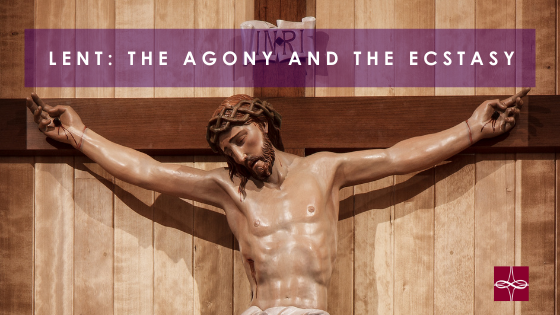

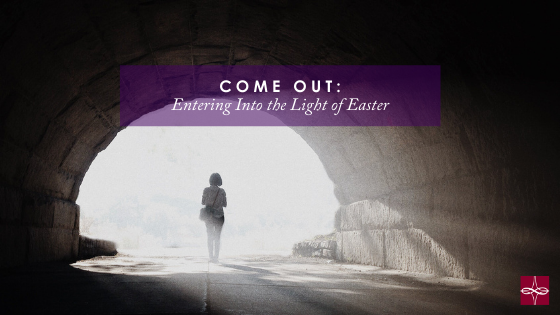

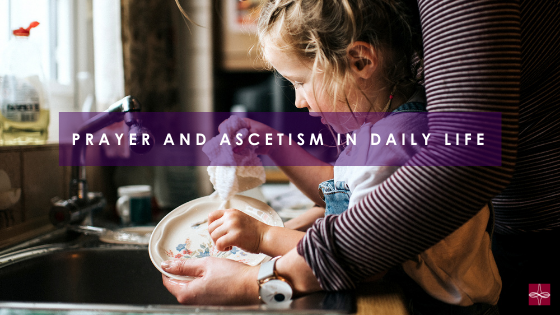


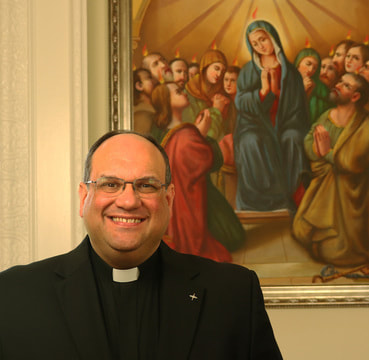




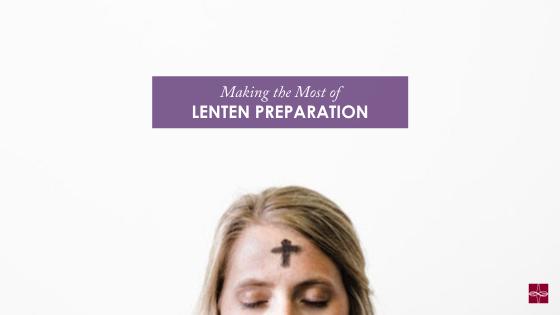

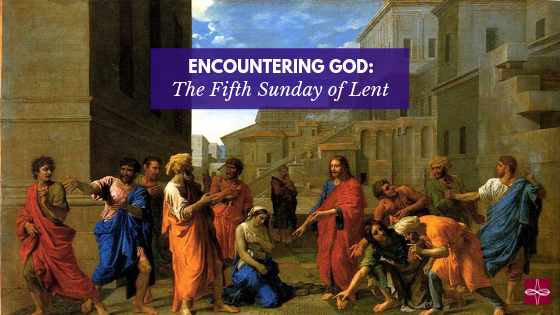

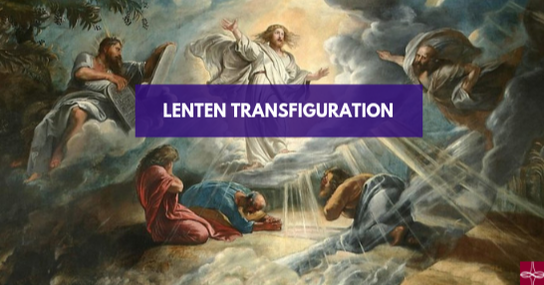

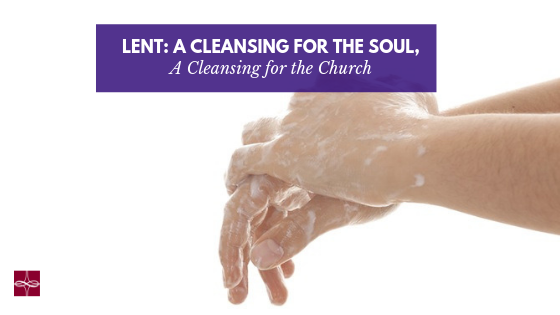

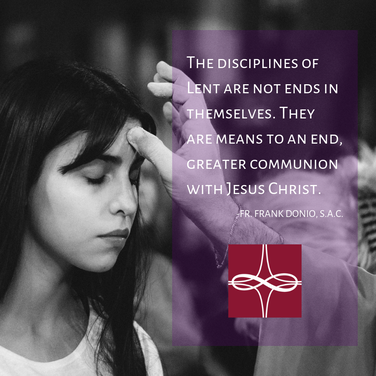
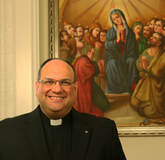
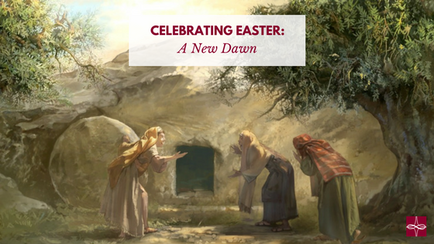

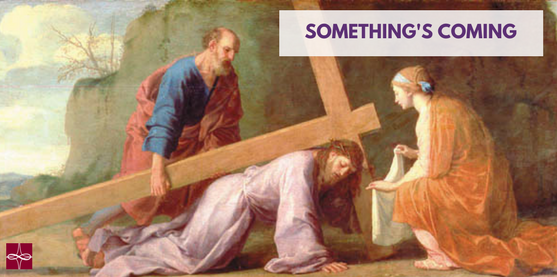

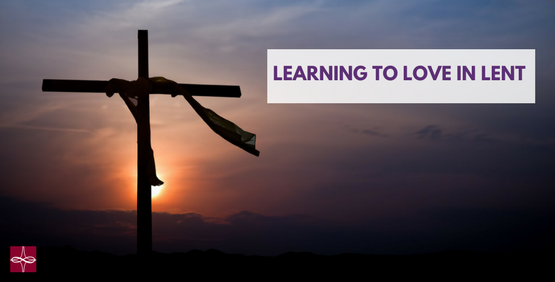

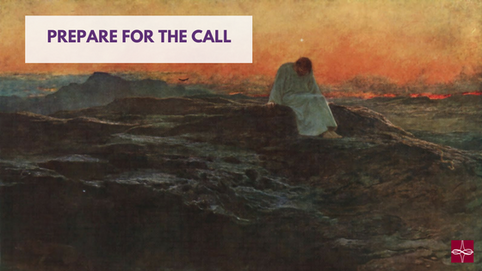

 RSS Feed
RSS Feed